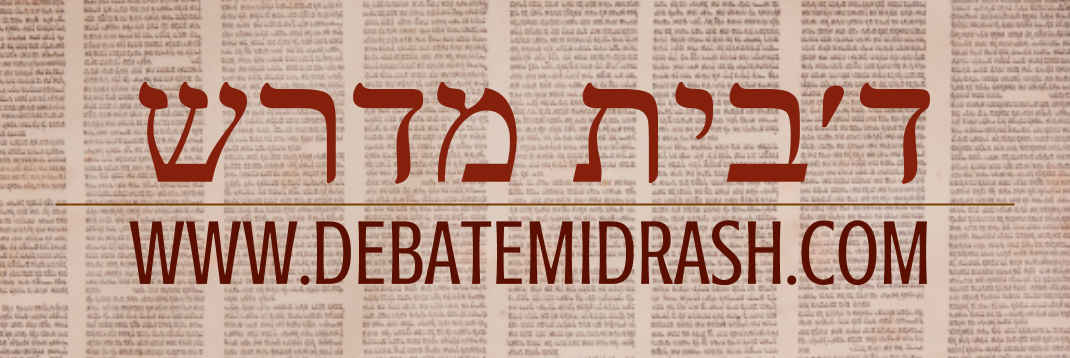| 1. And these are the names of the sons of Israel who came to Egypt; with Jacob, each man and his household came: | | א. וְאֵלֶּה שְׁמוֹת בְּנֵי יִשְׂרָאֵל הַבָּאִים מִצְרָיְמָה אֵת יַעֲקֹב אִישׁ וּבֵיתוֹ בָּאוּ: |
| 2. Reuben, Simeon, Levi, and Judah. | | ב. רְאוּבֵן שִׁמְעוֹן לֵוִי וִיהוּדָה: |
| 3. Issachar, Zebulun, and Benjamin. | | ג. יִשָּׂשכָר זְבוּלֻן וּבִנְיָמִן: |
| 4. Dan and Naphtali, Gad and Asher. | | ד. דָּן וְנַפְתָּלִי גָּד וְאָשֵׁר: |
| 5. Now all those descended from Jacob were seventy souls, and Joseph, [who] was in Egypt. | | ה. וַיְהִי כָּל נֶפֶשׁ יֹצְאֵי יֶרֶךְ יַעֲקֹב שִׁבְעִים נָפֶשׁ וְיוֹסֵף הָיָה בְמִצְרָיִם: |
| 6. Now Joseph died, as well as all his brothers and all that generation. | | ו. וַיָּמָת יוֹסֵף וְכָל אֶחָיו וְכֹל הַדּוֹר הַהוּא: |
| 7. The children of Israel were fruitful and swarmed and increased and became very very strong, and the land became filled with them. | | ז. וּבְנֵי יִשְׂרָאֵל פָּרוּ וַיִּשְׁרְצוּ וַיִּרְבּוּ וַיַּעַצְמוּ בִּמְאֹד מְאֹד וַתִּמָּלֵא הָאָרֶץ אֹתָם: |
| 8. A new king arose over Egypt, who did not know about Joseph. | | ח. וַיָּקָם מֶלֶךְ חָדָשׁ עַל מִצְרָיִם אֲשֶׁר לֹא יָדַע אֶת יוֹסֵף: |
| 9. He said to his people, "Behold, the people of the children of Israel are more numerous and stronger than we are. | | ט. וַיֹּאמֶר אֶל עַמּוֹ הִנֵּה עַם בְּנֵי יִשְׂרָאֵל רַב וְעָצוּם מִמֶּנּוּ: |
| 10. Get ready, let us deal shrewdly with them, lest they increase, and a war befall us, and they join our enemies and depart from the land." | | י. הָבָה נִתְחַכְּמָה לוֹ פֶּן יִרְבֶּה וְהָיָה כִּי תִקְרֶאנָה מִלְחָמָה וְנוֹסַף גַּם הוּא עַל שׂנְאֵינוּ וְנִלְחַם בָּנוּ וְעָלָה מִן הָאָרֶץ: |
| 11. So they appointed over them tax collectors to afflict them with their burdens, and they built store cities for Pharaoh, namely Pithom and Raamses. | | יא. וַיָּשִׂימוּ עָלָיו שָׂרֵי מִסִּים לְמַעַן עַנֹּתוֹ בְּסִבְלֹתָם וַיִּבֶן עָרֵי מִסְכְּנוֹת לְפַרְעֹה אֶת פִּתֹם וְאֶת רַעַמְסֵס: |
| 12. But as much as they would afflict them, so did they multiply and so did they gain strength, and they were disgusted because of the children of Israel. | | יב. וְכַאֲשֶׁר יְעַנּוּ אֹתוֹ כֵּן יִרְבֶּה וְכֵן יִפְרֹץ וַיָּקֻצוּ מִפְּנֵי בְּנֵי יִשְׂרָאֵל: |
| 13. So the Egyptians enslaved the children of Israel with back breaking labor. | | יג. וַיַּעֲבִדוּ מִצְרַיִם אֶת בְּנֵי יִשְׂרָאֵל בְּפָרֶךְ: |
| 14. And they embittered their lives with hard labor, with clay and with bricks and with all kinds of labor in the fields, all their work that they worked with them with back breaking labor. | | יד. וַיְמָרֲרוּ אֶת חַיֵּיהֶם בַּעֲבֹדָה קָשָׁה בְּחֹמֶר וּבִלְבֵנִים וּבְכָל עֲבֹדָה בַּשָּׂדֶה אֵת כָּל עֲבֹדָתָם אֲשֶׁר עָבְדוּ בָהֶם בְּפָרֶךְ: |
Guide Questions:
1. According to Rashi, why are the names of the children of Israel listed at the beginning of Exodus when they had already been listed at the end of Genesis? What does this tell us about the relationship between God and Israel? How can you reconcile that with the fact that they were going into slavery?
2. The Torah says that the Israelites went from 70 people to hundreds of thousands in just a few generations. How does Rashi say they did this (see verse 7)? Can you figure out where he got this number from? Read the verse carefully.
3. What are the two ways Rashi says we can understand verse 8? Which do you think is more likely?
4. According to Rashi on verse 12, what were the Egyptians disgusted at? How might this connect to the idea of freedom activist Nelson Mandela, that it is not only the enslaved who need to be freed but also the enslaver?
5. According to the Stone Chumash (p. 293), how does Pharaoh's plot relate to anti-Semitism?
6. According to Rebbe Nachman's Torah (p. 24-25), what does the word קָשָׁה (in verse 14) mean with regard to the Israelites' (and our) faith in God? How does this relate to us today?
7. According to the Women's Torah commentary (p. 308), what is new about calling the Israelites in verse 9 עַם בְּנֵי יִשְׂרָאֵל? Do you think of the Jewish community as a nation or a family? Why?
8. In The Commentator's Bible (p. 3) , Nahmanides says the theme of the book of Exodus is exile. What is exile? What two conditions had to be met in order for in order for the exile to be over? Do you think we have met those conditions today? Why or why not?
